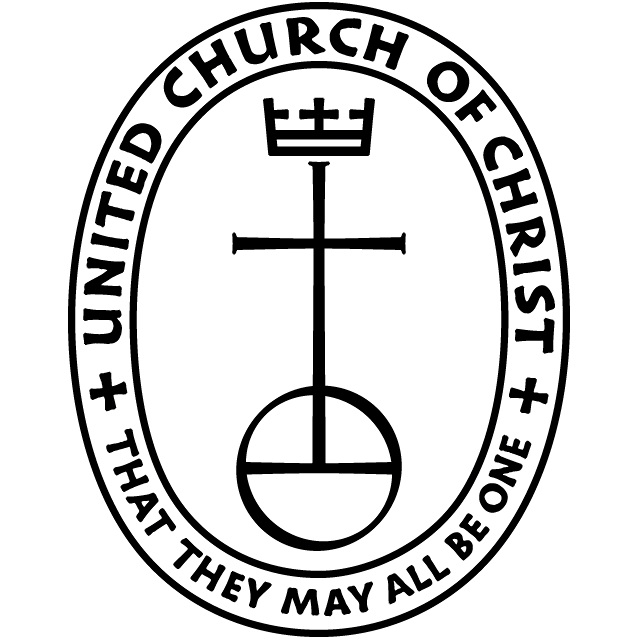WHAT WE BELIEVE
Our calling
Our calling is to live into the kindom of God more fully by cultivating community, practicing hospitality, and publicly demonstrating and advancing God's peace.
our covenant
Covenant Statement Adopted in 2009
by First Congregational United Church of Christ, Portland, Oregon
We are a progressive Christian community embracing diversity of thought, belief and action. In our worship and in our lives, we believe that God is still speaking, and that the risen Christ lives in and among us.
We covenant together to:
create a sacred space that is accessible and welcoming to everyone;
work for justice in our community and in our world;
express, in our living, a care for creation and a stewardship of all God’s resources;
nurture our relationships with one another through our listening and our caring;
grow in faith, learning and service.
Open & Affirming (ONA)
Our church has covenanted (made a sacred promise) to be "Open and Affirming," a designation which signifies our commitment to welcome and honor the participation, wisdom and leadership of people of all sexual orientations, gender identities and gender expressions in our spiritual community.
Immigrant Welcoming
Adopted by the Church Annual Meeting, January 27, 2019
Immigrant Welcoming Congregation Declaration of First Congregational UCC in Portland, Oregon
We are followers of Jesus, who welcomed everyone and treated everyone with dignity and compassion.
As members and friends of First Congregational UCC, Portland, Oregon, we are called by our God to work to create a world where there are no longer strangers, responding in word and action whenever lives are made vulnerable or injustice occurs.
In these days, we are moved by our faith and consciences to stand together with our immigrant brothers & sisters and their families.
Therefore, hereby, we declare ourselves an Immigrant Welcoming Congregation in collaboration and solidarity with the Central Pacific Conference of the United Church of Christ and other faith-based communities.
This requires that we build relationships across barriers, educate ourselves, advocate for human rights and accompany our immigrant neighbors in times of need, as follows:
Deepen the connection between immigrant and nonimmigrant members and families within First Congregational UCC and throughout the broader community.
• We will welcome and listen to the first-hand stories of immigrants and their families in our community who have experienced injustice.
• We will study the sacred stories of migration, injustice, hospitality, and hope which already exist in our own tradition.
• We will build relationships through worship and other activities, such as service projects and community events.
• As soon as possible, our Church Council will establish a committee to develop an Action Plan that implements our Immigrant Welcoming Declaration.
Educate ourselves and our community about immigration-related issues
• We will educate ourselves about issues facing immigrants and their families, including government actions affecting immigration policy.
• We will support organizations that work for immigrant justice/immigration policy reform, and avail ourselves of the resources that they provide.
• We will help educate the wider community on immigration-related issues.
Advocate for justice and comprehensive humane immigration reform
• We will be a compassionate and persistent voice for justice for our immigrant brothers and sisters and their families.
• We will actively and publicly work for comprehensive humane immigration reform in Oregon and the USA, consistent with the policies and social teachings of the United Church of Christ.
• We will support the position of the United Church of Christ and other faith-based organizations calling for an end to programs that separate families and erode trust between law enforcement and immigrant communities such as the Secure Communities Program that has led to unjust detentions, deportations, and unnecessary separations within immigrant families.
• We will include our voice as a church community and provide opportunities for individual members to include their voices in addressing immigrant justice.
• We will work cooperatively with the Oregon Interfaith Movement for Immigrant Justice (IMIrJ) organization and encourage individuals to join/participate. We will also work cooperatively with other faith-based communities and encourage others to join in this collaboration.
Accompany and support immigrants and their families at their request when facing immigration-related hearings and meetings or seeking change in their immigration status
We will accompany immigrants at their request to immigration hearings and meetings related to immigration status to provide witness and support.
We will provide hospitality and tangible support for immigrants and their families going through immigration-related proceedings.
We will seek ways to provide support to immigrants and their families facing financial hardship because of immigration-related proceedings and issues.
We will provide spiritual, material and/or financial support for sister congregations that offer sanctuary for immigrants at imminent risk for deportation.
We will host, or co-host with other immigrant justice organizations, know-your-rights trainings, legal clinics, citizenship classes, and other educational programs as needed.
As an Immigrant Welcoming Congregation, we authorize the Senior Minister and the Moderator together to offer emergency short-term physical “safe haven” to immigrants at imminent risk for deportation.
Want to learn more? Get to know our congregation.
our Wider Church
As a congregational church and part of the national United Church of Christ (UCC), we follow a "covenantal" tradition—there is no centralized authority or hierarchy that imposes any doctrine or form of worship on its members. We seek a balance between freedom of conscience and accountability to our tradition. The UCC receives the creeds and confessions of our ancestors as testimonies, but not tests of the faith.


